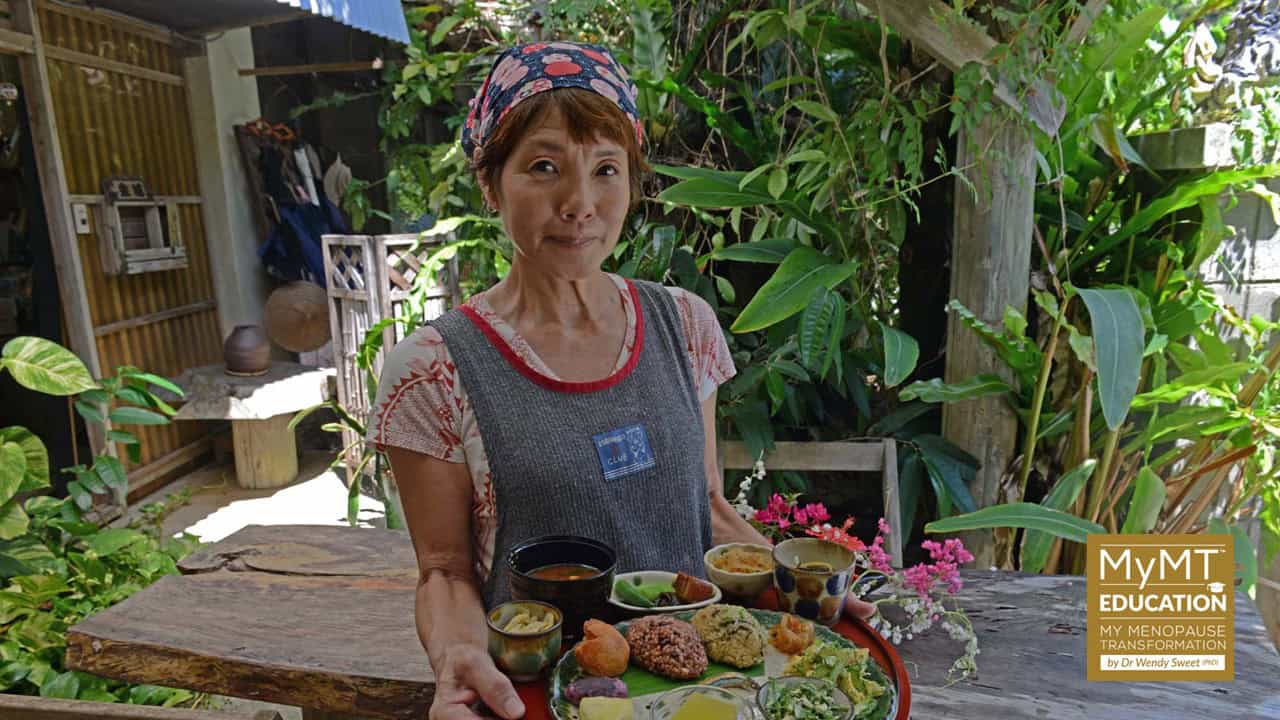The Women’s Healthy Ageing Project (WHAP) is a longitudinal study of over 400 Australian-born women, epidemiologically randomly sampled in 1990.
In the early 1990’s, researcher Professor Szoeke, became very dis-satisfied with the lack of clinical research on mid-life women. Up until then, most of the research connecting lifestyle behaviors and choices with diseases of ageing, such as cardiovascular disease, had been undertaken on men.
Her interest in women’s brain health led her towards setting up the first ever Women’s Midlife Health Project at the University of Melbourne, Australia.
Thirty years on, it is still running, although these days, it’s known internationally as the Women’s Healthy Ageing Project.
I first came across Professor Szoeke’s work when I was doing my own doctoral studies on women’s health and ageing. Her work was pivotal in helping me understand that when it comes to menopause, not only do our symptoms influence how we might age (positively or negatively), but changing our lifestyle matters more than we think.
“For women living in western countries“, mentioned Professor Szoeke, “the two most relevant diseases of ageing are cardiovascular disease and dementia. Therefore, when we look at how women are ageing, it is important to look at the chronic diseases of ageing. A key secret to maintaining quality of life in ageing, is therefore to adapt to change, making the most of abilities and opportunities.” [Szoeke, 2021]
I’m often telling women on my own programs that I don’t care if they are on various hormonal medications for menopause. Not only because this is between them and their medical Doctor and not me, but because I’m more interested in using evidenced lifestyle solutions to help them turn around their symptoms and move them towards their healthy ageing.
Lifestyle solutions for women’s healthy ageing, encompass a number of factors – sleep, nutrition, exercise, rest, social connection, restoring underlying injuries, improving mental health and cognition (thinking) and aiming to reduce any inflammatory changes that have developed over the years.
When we focus on these factors and women understand how to put these strategies into place during their menopause transition, as Professor Szoeke’s Women’s Healthy Ageing Project Research suggests, women live another decade longer.
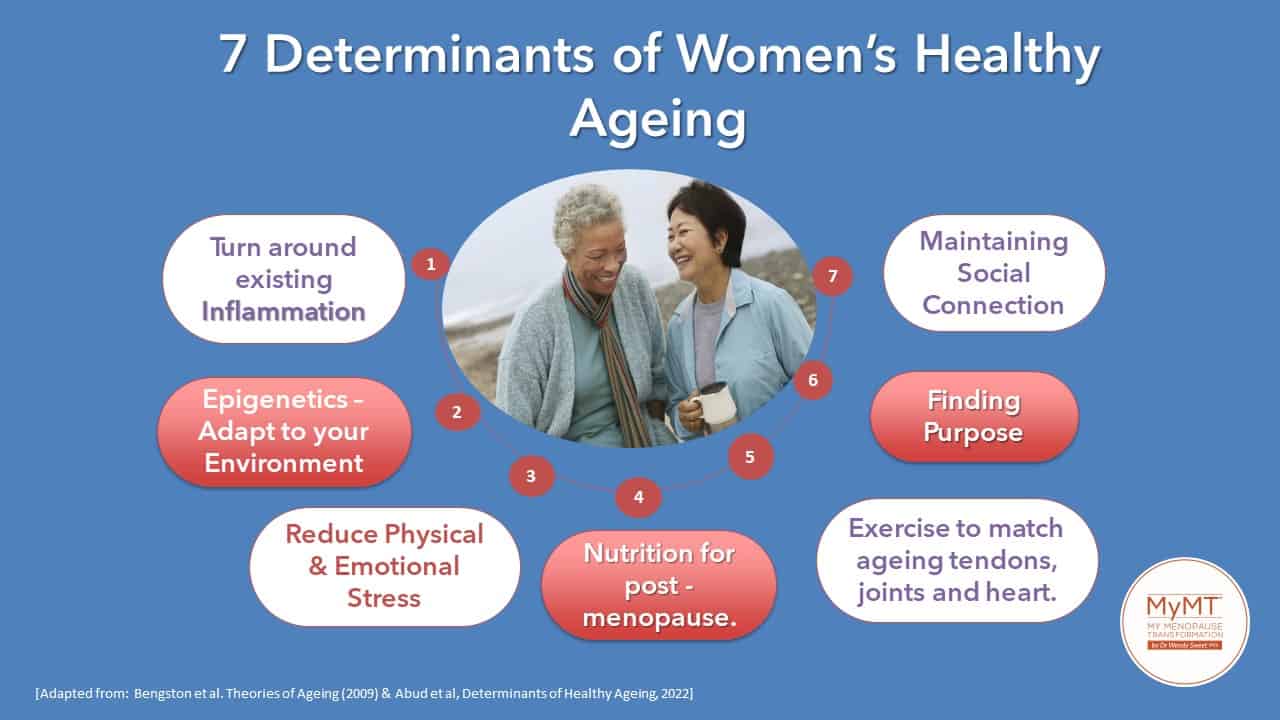
Understanding ‘Healthy or Successful Ageing’:
Your role as a Health Practitioner must have an underlying academic framework from which to work within your particular scope of practice.
As I’ve better understood a women’s menopause transition in the context of the health and ageing literature, this has enabled me to consider the midlife menopause transition within the broader context of women’s healthy ageing.
I hope you can do the same too and I talk a lot about this in the Health Practitioner CPD/CEU 12 week course.
In 1997, one of the very first academic papers appeared written by Rowe and Kahn introduced the concept of successful ageing, separating the effects of disease from the process of ageing.
Since then, a rapidly growing body of literature has been investigating the components of how people age successfully or healthily. This work has led to the multi-dimensional recognition of the ageing process and a new definition of healthy ageing as by the World Health Organisation (WHO).
The WHO defines healthy or active ageing as “the process of optimising opportunities for health, participation, and security in order to enhance quality of life as people age.”
Taking this definition into consideration alongside the current World Health Organisation [WHO] definition of health, which was formulated in 1948, we can see that health is “a state of complete physical, mental and social well-being and not merely the absence of disease or infirmity.”
Even as far back as 1948, defining ‘health’ was an attempt to acknowledge that there are numerous influences and dimensions that affect the health of individuals.
Taking both definitions into consideration in light of the health challenges that millions of women experience as they transition menopause is important for us as Health Coaches and Practitioners. It gives us a starting point from which to examine their lifestyle behaviours.
Supporting lifestyle behaviour change is what we do, so I have 4 of my top tips for you below so you can help your midlife clients step towards the ‘healthy ageing’.
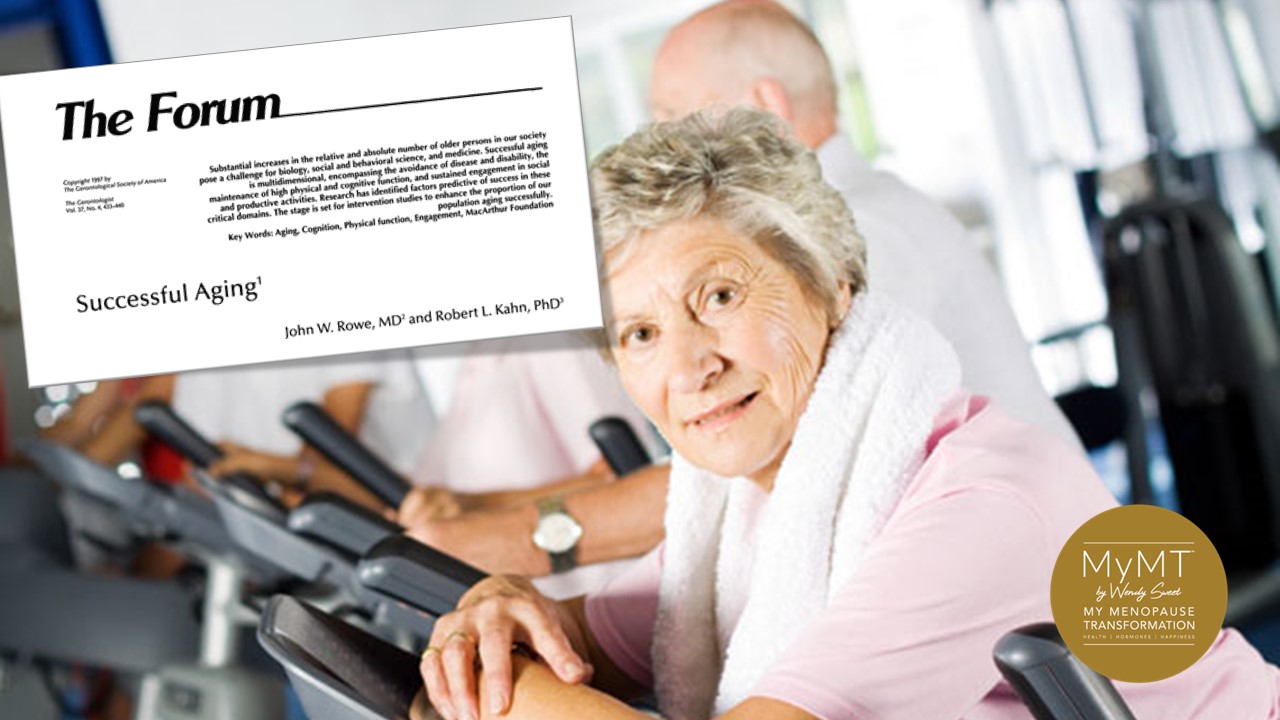
- Encourage your clients to allow their body to ADAPT to their changing hormonal environment in menopause. Whether women are heading into peri-menopause, or they are already in post-menopause, then the body is naturally trying to clear excess oestrogen and progesterone.
Whilst your clients may also be on menopause HRT, just remind them that from a life-course perspective, their reproductive cycle is ending! Therefore, for some of your overweight clients, excess oestrogenic compounds from environmental pollutants, food, medications and of course, alcohol, may impact their weight, moods and motivation as they move through menopause.
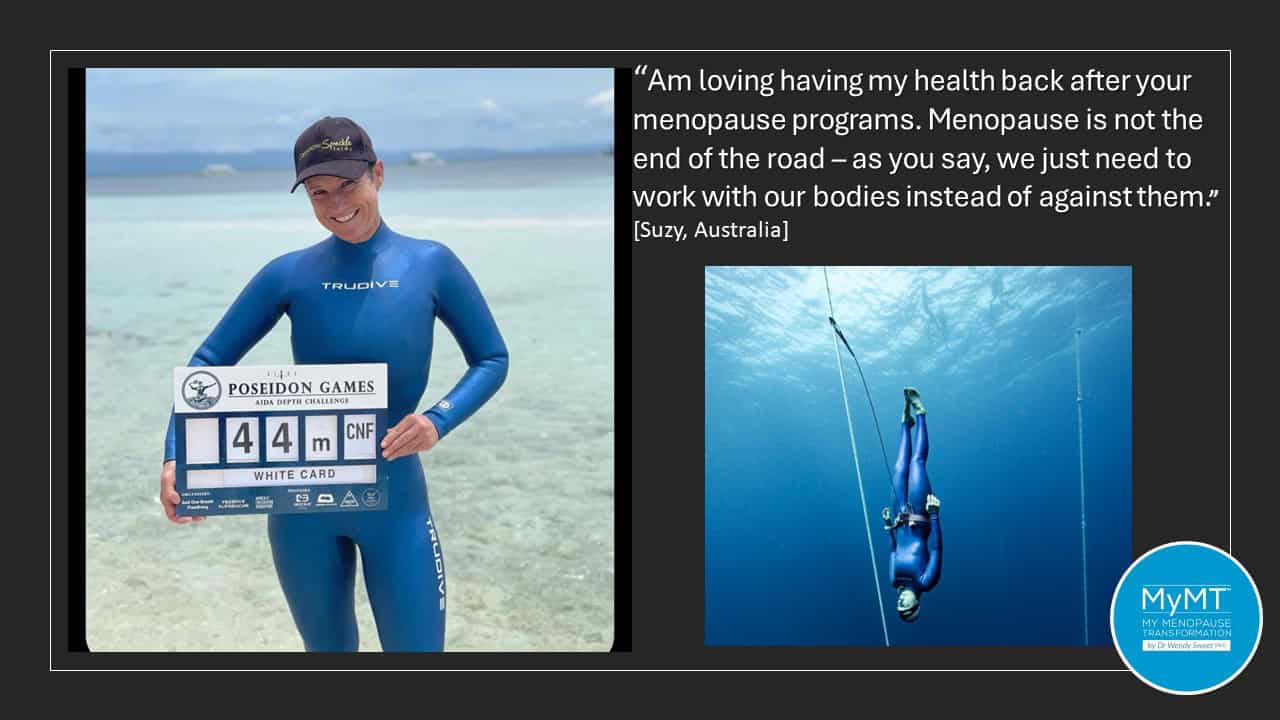
- Turn around Circadian Rhythm. The basis of ‘good health’ is understanding that your client’s sleep matters. Between 7-8 hours of deep restorative sleep is crucial to restoring health as women age. This requires some changes to their exercise and nutrition type and timing. If they are waking up to hot flushes, night sweats or an over-active bladder, then help them to understand that their lowering oestrogen is affecting the production of the sleep hormone melatonin and due to the powerful connection between the pituitary, thyroid, adrenals and ovaries, managing the HPA-Axis is important.
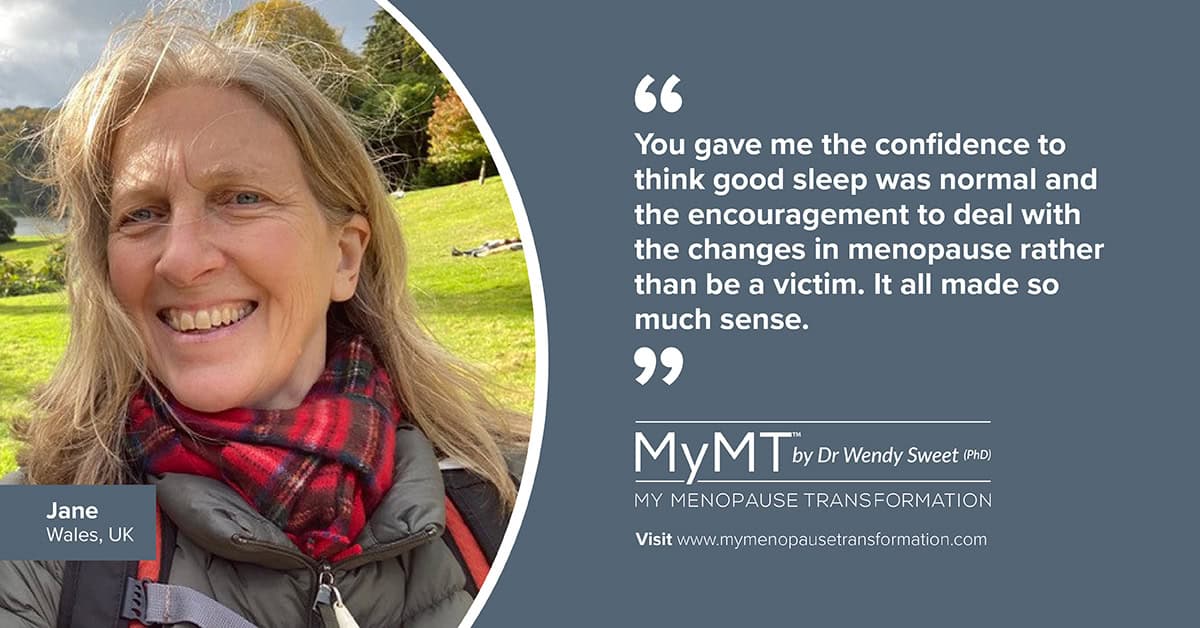
3. Reduce the intake of ANIMAL FATS if clients are already overweight or obese during their menopause transition. Oestrogen is a powerful hormone but our fat cells love storing it. Animal fats contain hormones too and may contribute to worsening inflammation in the liver, kidney and joints. Because ageing itself is inflammatory, as the blood vessels, liver, gallbladder gut, nerves and muscles all experience changes as oestrogen declines, then menopause becomes a vulnerable time for additional inflammatory changes in the liver.
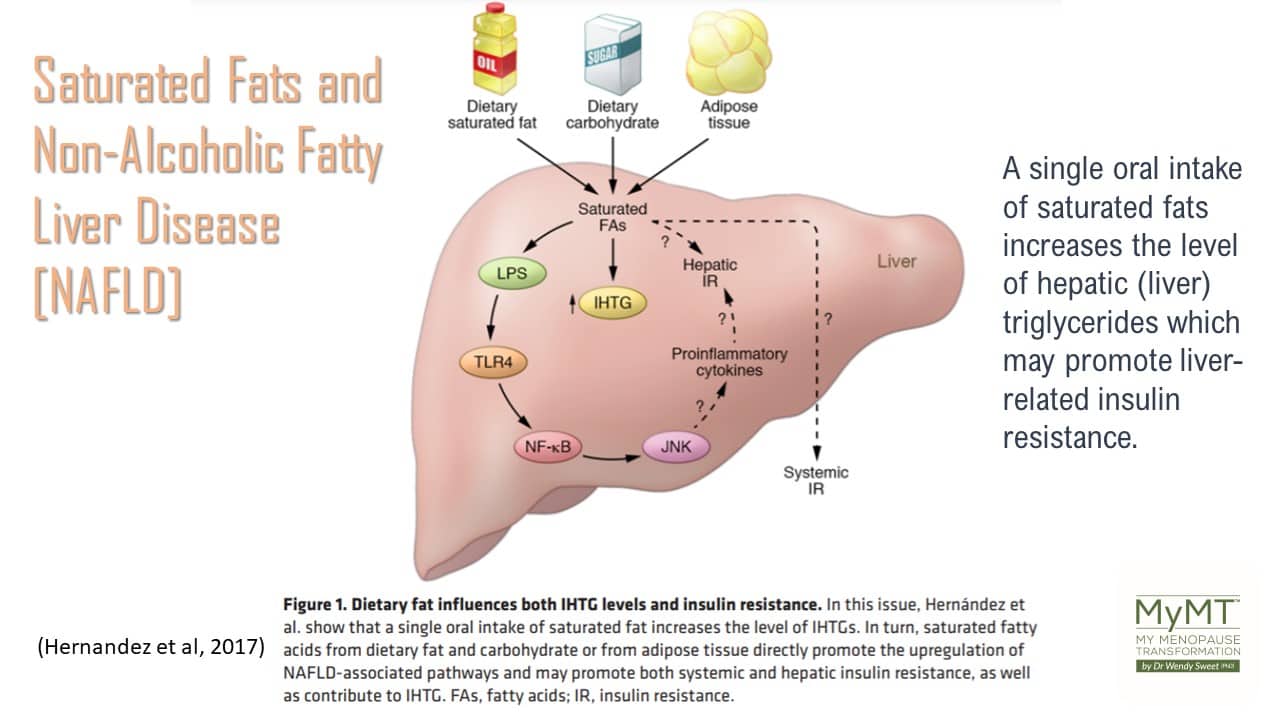
- Restore your Sore Joints so you can become active again as you age. Healthy ageing depends on remaining functional and active. We all know this. But how do we help clients turn around their muscle and joint pain, so they can return to activity? That was my dilemma as well. When I learnt that we have oestrogen receptors in our tendons, that also lose the attachment of oestrogen, I discovered powerful strategies from the joint-health research that allow our joints to feel healthy again.
I now have an entire module about this in my two menopause transformation programmes. One of these strategies is to use cold-pressed extra virgin olive oil instead of all the various other oils that are frequently marketed to women, e.g. coconut oil, soybean oil, canola oil etc.
Sarah, who is an Affiliate Practitioner and a Physiotherapist in Perth, Australia now better understands the impact of this for her female clients presenting to her with painful joints during their menopause transition!
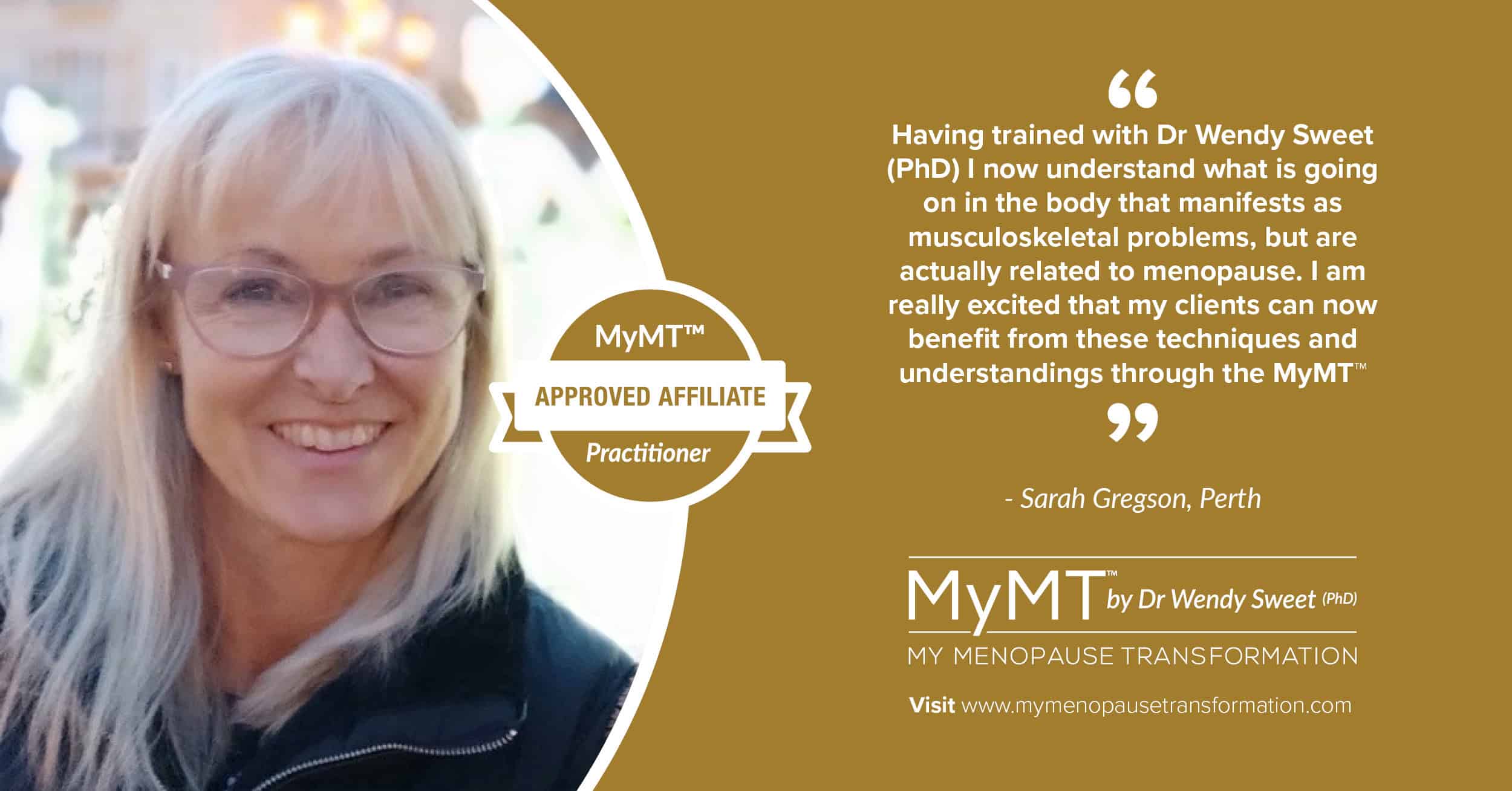
We already know from the health of the first cohort of Baby-boomers to reach their older-age, (those women over 65 years currently, that many health challenges of ageing are due to the accumulation of inflammation in cells and tissues.
That’s why mid-life is an important time for women to take back control and you can help them so much with this. One of the most powerful strategies in lifestyle behaviour change, is the effect of a knowledgable coach.
When women lose the effect of their reproductive hormones, it means they have to make some adjustments to their lifestyle. However, many, as you know are busy, tired and confused, so they give up easily!
That’s why, whatever your scope of practice I have a variety of courses for you to dip into so that you better understand how to coach your clients through this amazing life-stage. I hope you can join me and Course Convenor, Georgia, sometime. Start by exploring the MyMT™ Education pages HERE. You get beautiful e-books in too which are full of the articles and scientific evidence I know you will enjoy reading.
When you undertake a course, you also get to come into my private coaching community for Practitioners and Coaches, so you can also ask your questions in there and feel supported.
Dr Wendy Sweet, PhD/ Member: Australasian Lifestyle Medicine Society.
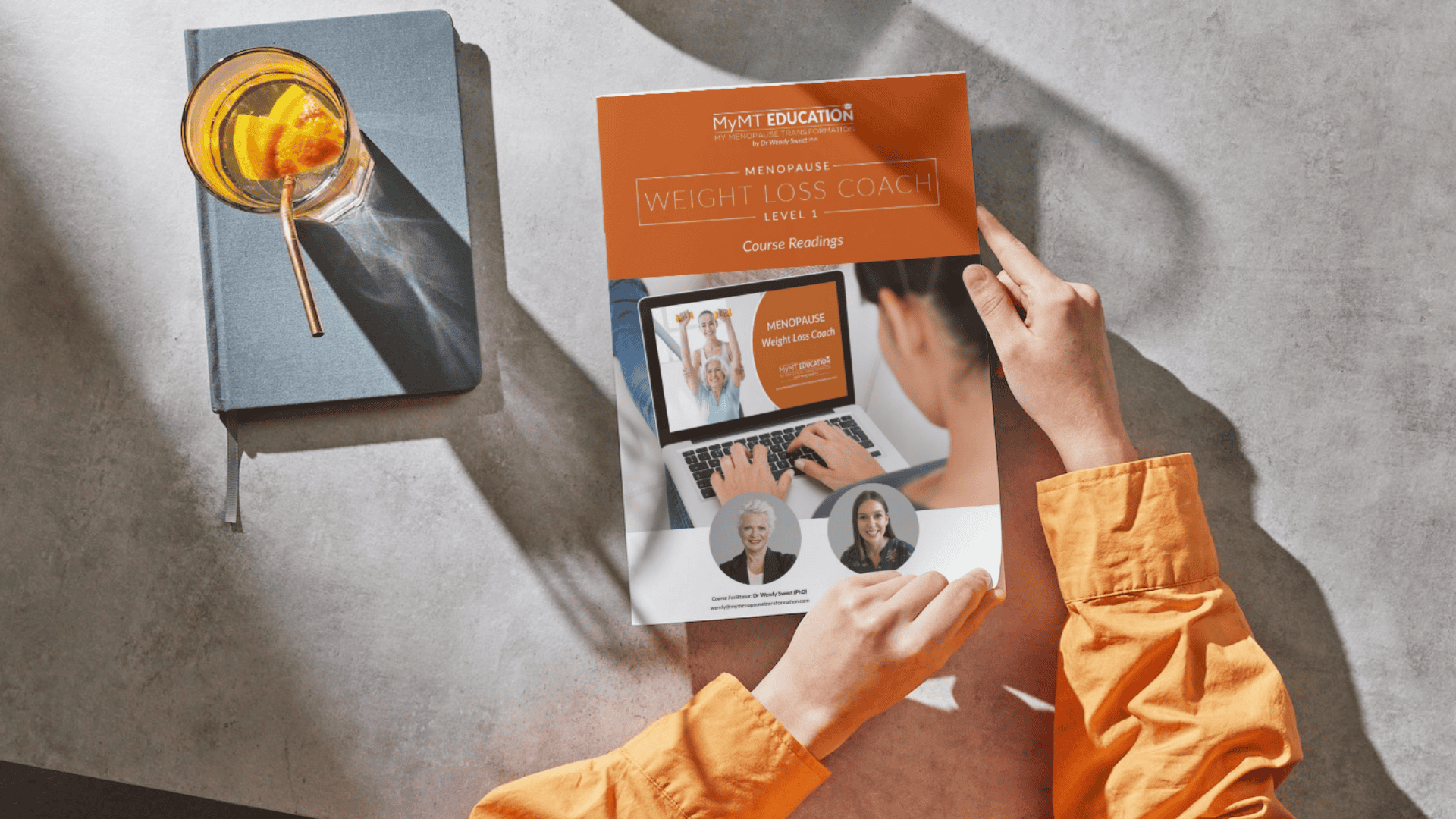
References:
Chalise, Hom Nath et al (2023). Healthy Ageing: A Basic Concept. Asian Journal of Population Sciences (2), 124 – 128
Menassa M., Stronks K., Khatmi F., Roa Díaz Z., Espinola O., Gamba M., Itodo O., Buttia C, Wehrli F., Minder B., Velarde M., Franco O.. Concepts and definitions of healthy ageing: a systematic review and synthesis of theoretical models. EClinicalMedicine. 2023 Jan 12;56:101821.
Rowe, J. & Kahn, J. Successful Aging, The Gerontologist, Volume 37, Issue 4, August 1997, Pages 433–440, https://doi.org/10.1093/geront/37.4.433
Szoeke C, Coulson M, Campbell S, Dennerstein L; WHAP Investigators. Cohort profile: Women’s Healthy Ageing Project (WHAP) – a longitudinal prospective study of Australian women since 1990. Womens Midlife Health. 2016 Oct 4;2:5. doi: 10.1186/s40695-016-0018-y.
Szoeke CE, Robertson JS, Rowe CC, Yates P, Campbell K, Masters CL, Ames D, Dennerstein L, Desmond P. The Women’s Healthy Ageing Project: fertile ground for investigation of healthy participants ‘at risk’ for dementia. Int Rev Psychiatry. 2013 Dec;25(6):726-37.
